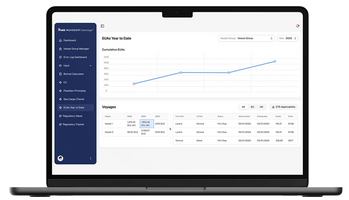Rains flood Mississippi River; US soy exports at 4-year-high
Government data shows that exporters shipped soybeans at their fastest rate in four years from the busiest U.S. grain port after rain increased water levels in Mississippi River.
The Mississippi River is the most important grain waterway in the United States. Barges travelling south along the Mississippi are responsible for 60% of the soy exported from the U.S.
The heavy rains in the middle of the United States have brought relief to Gulf Coast grain exporters after the Mississippi River fell to near historic lows for the third consecutive year during the peak season.
The deeper waters allow crop handlers and barge tows to transport more grain to exporters.
Traders were scrambling for barges to move the second largest U.S. soybean crop in history. They are trying to get rid of inventory before the newly harvested Brazilian soybeans flood the market in early 2019.
Merchants worry that Donald Trump, the U.S. president-elect, will resurrect a trade conflict with China and other major trading partners. They fear that Beijing and these other importers may retaliate against U.S. grain purchases.
Inspections of soybeans for export marked at terminals on the Mississippi River and Gulf
USDA data revealed that 11 vessels bound for China carried 663,272 tonnes of soybeans last week.
Chinese customs data revealed that imports in October had more than doubled compared to the same month a year earlier.
Matt Herrington is the director of commodity analysis at World Perspectives Inc.
He said that if the water levels had continued to fall and the weather had continued to dry, there would have been major effects on the markets, such as increased barge freight rates.
The barge load was heavier this month and the barge number needed to meet the demand decreased. This made U.S. soy beans more competitive in the global market.
Analysts warn that the immediate benefits to U.S. Exports could be short-lived. Brazil's farmers, who are the top soybean suppliers in the world, have nearly finished their planting for what could be a record harvest. It may begin as early as January.
According to LSEG, Brazilian soybeans are currently being offered at a price of $13 less per metric ton than U.S. beans at the Gulf.
Rich Nelson, chief strategy for Allendale Inc., said that the improvement of the Mississippi River is "helpful" and "this is peak shipping season." "However, it does not change the reality that Brazil offers a discount on its products." Reporting by Julie Ingwersen in Chicago and Karl Plume; editing by P.J. Huffstutter and Simon Webb, with Bill Berkrot.
(source: Reuters)







